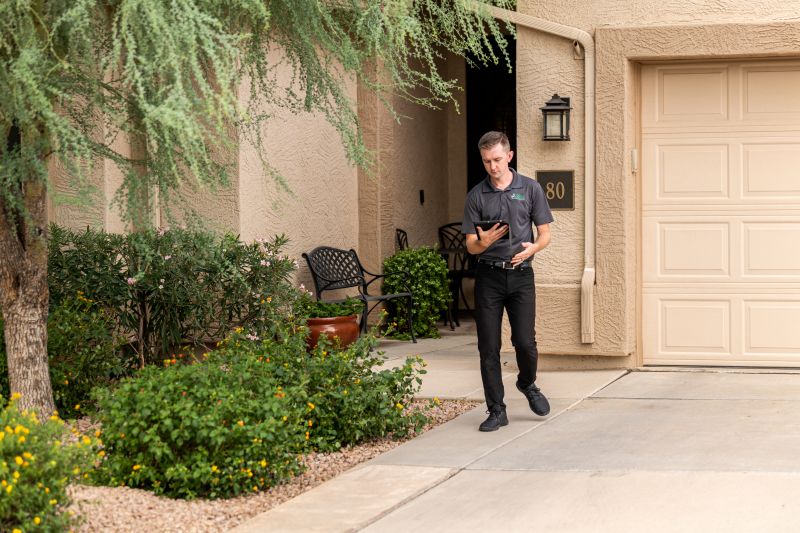Should You Get ACE Pest Control Certification? (+Pros & Cons)

ACE Certification, an Entomological Society of America credential, is a respected badge for pest control professionals looking to prove their entomology and pest management expertise. Is it worth it for your career?
In this post, we’ll break down the benefits, costs, and challenges of completing the ACE program. You’ll learn how this certification can boost credibility, customer trust, and career growth for pest control professionals and businesses.
What Is ACE Pest Control Certification?
The Associate Certified Entomologist (ACE) certification is a professional credential for pest control professionals who want to demonstrate their expertise in entomology and pest management.
The Entomological Society of America (ESA), the leading authority in the pest control industry, offers the certification.
ACE is a certification that proves a deep understanding of:
Basic entomology
Integrated pest management (IPM) (IPM practices are not identified in the marketplace because there is no national certification.)
Pesticide safety and application
Pest activity and pest control program design
It separates pest control professionals from competitors with only a pesticide applicator's license.
By becoming ACE certified, professionals commit to excellence and ethical practice through the ACE Code of Ethics.
The certification is a benchmark for quality in the pest management industry and is endorsed by the National Pest Management Association (NPMA).
Learn more about the ACE certification directly from ESA; they have a great FAQ section.
This isn’t just for technicians—pest control business owners also benefit from building client trust and credibility.
Let’s look at who should get ACE-certified next.
Who Should Get ACE Certified?
The ACE certification is for pest control professionals looking to elevate their expertise and credibility in the pest management industry. It shows advanced knowledge, dedication, and a commitment to ethical practices.
You should get ACE certified if you are:
A pest control professional looking to advance your career and grow professionally.
A pest control business owner who wants to build client trust and stand out in a crowded market.
A technician offering specialized pest control services like termite control, bed bugs, or integrated pest management (IPM).
A leader looking to mentor new technicians and reinforce service quality across teams.
But ACE certification may not be necessary if:
You’re new to the pest control business and don’t have the required years of verifiable pest management experience.
Your career goals don’t include supervisory roles or expanding into advanced pest control services.* You only work in structural pest control roles with state licensing already met.
For more on growing a business without certification, check out our guide on the top challenges for pest control companies.
What Are the Benefits of Getting ACE Certified?
Becoming ACE-certified offers tangible benefits for pest control professionals and business owners. It increases expertise, builds trust, and opens up new growth opportunities in the pest management industry. Here’s how becoming ACE-certified can help your career or business:
1. Increased credibility & trust
ACE certification builds customer confidence by showing advanced pest management knowledge. Clients will likely trust a pest control professional with credentials beyond basic licensing. This certification demonstrates your commitment to quality and adherence to the ACE code of ethics so clients can trust you and your business.
2. Career growth & job opportunities
Certified professionals can access higher-paying jobs and leadership roles within pest control companies. Managing pests effectively is a key skill that ACE certification helps develop. ACE certification can lead to management or training roles, so you can lead teams and shape the business. Employers and customers value certified experts, so job offers and promotions are more available.
3. Competitive advantage
ACE certification helps pest control professionals stand out in a crowded market. It includes IPM programs, which combine multiple pest management strategies based on comprehensive pest life cycle information and environmental interactions. It puts you ahead of non-certified competitors by showing your advanced skills and commitment to the industry. For business owners, having ACE-certified staff increases your company’s reputation and can help win commercial pest control contracts.
4. Industry recognition
The certification from the Entomological Society of America is widely respected. It validates your expertise in pest control operations, pesticide safety, and integrated pest management. IPM means a holistic approach focused on long-term pest prevention by looking at the entire ecosystem.
Industry peers and customers recognize the ACE certification as a professional benchmark.
5. Personal & professional development
Preparation and maintenance of ACE certification expands your knowledge of pest problems, pest activity, and best practices. It ensures ongoing learning through CEUs (Continuing Education Units) and keeps you updated with regulatory changes. Investing in yourself also benefits your pest control business by driving innovation and continuous improvement.
Now, let’s look at the challenges of getting ACE certified.
What Are the Challenges of Getting ACE Certified?
While ACE certification has its advantages, pest control professionals should weigh the challenges before committing. The process requires time, effort, and financial investment and may not suit every career path or business model. Here are the main hurdles to consider:
1. Time commitment
Preparing for the ACE exam requires focused study across multiple pest management and basic entomology areas. Pest control professionals must dedicate time outside of regular work hours for review and exam prep. Balancing study time with business operations and personal commitments can be tricky, especially for small business owners.
2. Exam difficulty
The ACE exam is demanding and requires in-depth knowledge of insecticides, rodenticides, integrated pest management, and structural pest control. It also requires in-depth knowledge of insects and their role in pest management. Even experienced pest control technicians can find the test challenging, with questions designed to test both practical application and theory. Success requires field experience and an understanding of entomological principles and scientific terminology.
3. Cost factor
Pursuing ACE certification comes with significant costs, including exam fees, study materials, and recertification costs. IPM is crucial to effective pest control and is part of the ACE certification. For some pest control companies or individual technicians, the financial investment may not be feasible alongside other business costs. Budgeting is key, especially for those already investing in marketing or pest control employee training.
4. Not always necessary
Not every pest control business or professional needs ACE certification to be successful. Without this additional credential, many pest management professionals succeed with state certifications and strong customer service. Evaluate your business goals and customer base before deciding if an ACE certification will provide a measurable ROI.
What Are the Requirements for Getting ACE Certified?
The ACE (Associate Certified Entomologist) certification, offered by the Entomological Society of America, is for experienced pest control professionals who want to validate their expertise and become board-certified entomologists. Before pursuing certification, you must understand the eligibility criteria and application process.
Work experience
You must have at least 5 years of verifiable pest management experience in roles such as technician, supervisor, or pest control business owner.
Professionals with a degree in entomology or a related science need just 3 years of experience.
Exam eligibility criteria
Hold a valid pesticide applicator’s license or meet the state’s structural pest control certification requirements.
Provide two letters of professional reference that speak to your character and professional ability.
Agree to follow the ACE Code of Ethics.
Required study materials and resources
Study guides, practice exams, and pest identification resources are recommended. Study materials should include information on mechanical control methods, such as rodent traps.
The ESA offers an official ACE Exam Prep Course to help you succeed.
Application process and fees
Submit an online application through the ESA ACE portal.
The cost includes a $355 application fee for ESA members ($395 for non-members).
After application approval, you can schedule your exam.
Once you meet the requirements, the next step is understanding the cost of obtaining ACE certification.
How Much Does ACE Pest Control Certification Cost?
Pest control professionals should consider the cost of earning their ACE certification. While the initial expense may seem high, the long-term career benefits often outweigh the costs.
Exam fees and application costs
The application fee is $355 for ESA members and $395 for non-members, paid through the ESA ACE portal.
This fee covers application processing and exam scheduling.
Renewal expenses
ACE certification requires renewal every three years.
Renewal costs $150 for members and $185 for non-members, plus proof of ongoing education (CEUs).
Additional costs
Study materials, such as exam prep courses and entomology reference guides, typically cost between $100 and $300.
Some pest control companies may cover these expenses for their team members.
Cost vs. return on investment
The credential helps pest control professionals secure better-paying roles and leadership positions. For pest control business owners, it enhances company credibility, which can attract commercial contracts and premium clients.
After understanding the financial aspect, the next step is seeing how FieldRoutes can help certified professionals maximize their investment.
How Can FieldRoutes Support ACE-Certified Pest Control Professionals?
ACE-certified pest control professionals hold themselves to the highest standards. To match this level of expertise, they need technology that helps them work smarter, not harder. FieldRoutes offers automation and insights that allow certified professionals to focus on service quality, customer satisfaction, and business growth without getting bogged down by administrative tasks.
Automating administrative tasks: Save time with automated scheduling, invoicing, and customer reminders. Reduce paperwork and free up more time to deliver expert pest control services.
Enhancing customer trust & communication: Use customer portals and automated follow-ups to strengthen client relationships. Showcase your ACE certification in all communications to reinforce trust and professionalism.
Optimizing route planning for efficiency: Maximize technician productivity with smart route optimization. Cut down travel time and fuel costs while increasing daily service capacity.
Improving business insights with reporting & analytics: Track service performance, revenue trends, and customer retention rates.
Supporting growth & scalability: Easily manage expanding teams with intuitive business management tools. Expand your pest control business into new service areas using built-in digital marketing solutions.
Next, let’s wrap up with actionable next steps.
It’s Your Turn Now
ACE certification has advantages such as credibility, better job opportunities, and industry recognition. But it also has challenges—exam difficulty, cost, and time commitment. Before deciding, pest control professionals should weigh their career goals, resources, and long-term plans.
If you want to stand out in the pest control industry and grow your business, becoming ACE-certified can help you reach new heights. However, pairing your certification with tools that simplify operations is key. FieldRoutes can help with automation, reporting, and customer management to match your expertise.
Learn how we support pest control companies through every stage of growth by reading our blog on how to manage a pest control business.





